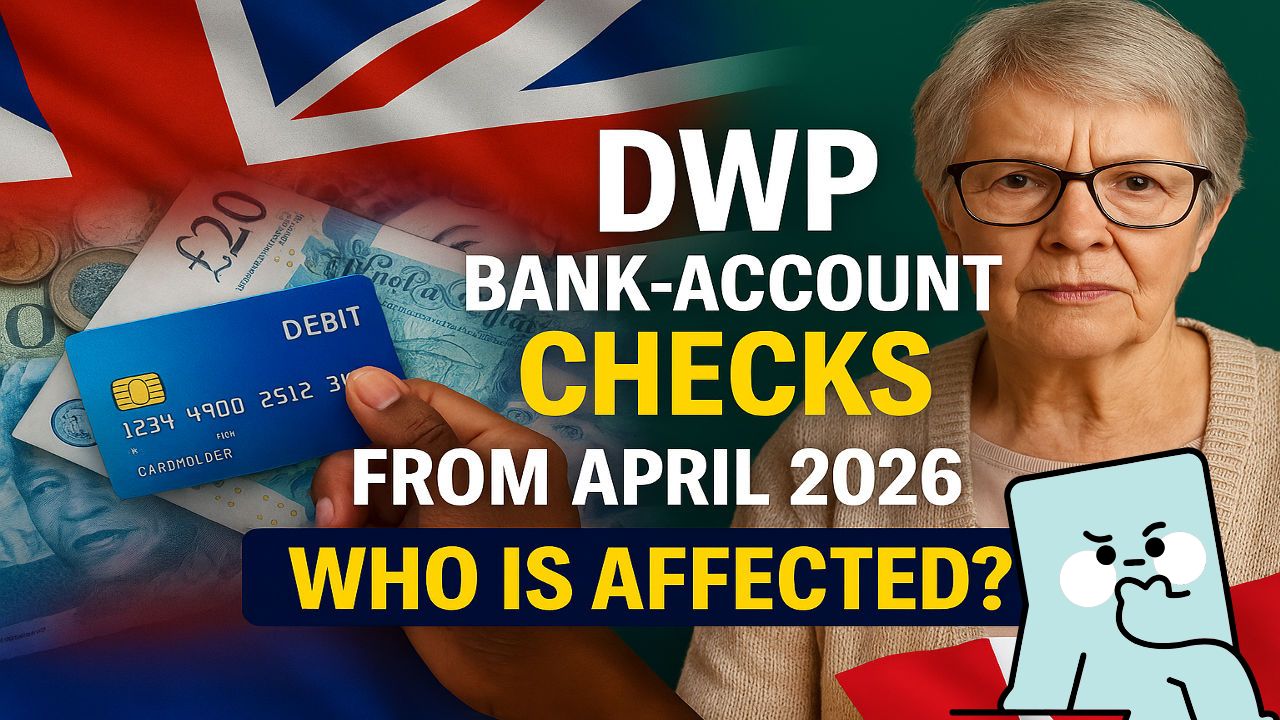The £300 figure relates to targeted recovery of confirmed overpayments, most commonly where records show that a pensioner was paid more than their entitlement under certain benefits or tax adjustments. It is not an automatic or universal withdrawal. HMRC says the approach is part of ongoing work to correct errors, recover overpaid public funds fairly, and keep accurate entitlement records.
HMRC Confirms £300 Bank Deduction For Some UK Pensioners Short Summary
Item |
Details |
|---|---|
What is happening |
HMRC may deduct £300 in specific overpayment cases after formal notice, not a blanket charge |
Who could be affected |
Pensioners with confirmed overpayments or unresolved discrepancies |
How you will know |
Official HMRC letter and messages in your GOV.UK account before any deduction |
Your rights |
Appeal within 30 days, submit evidence, request reconsideration or tribunal review |
If you cannot afford it |
Ask HMRC for instalments, direct debit, or hardship easements |
Avoid scams |
Never follow links from texts or social media; access www.gov.uk directly |
Official site |
HMRC guidance and contact routes: www.gov.uk |
Typical triggers for overpayment recovery
- Income, savings, or living arrangements changed but were not reported promptly.
- System or data entry errors that later require correction.
- Duplicate or overlapping payments after pension upratings or benefit changes.
- Late updates from other authorities that retroactively alter entitlement.
Who could be affected
You may be in scope if you:
- Were previously notified of an overpayment or a discrepancy in your record.
- Have not arranged repayment after an earlier notice.
- Have benefit entitlement that changed due to income, savings, or household status updates.
You are unlikely to be affected if you have kept HMRC up to date, have no prior overpayment notices, and your benefit and tax records are accurate.
How you will be notified
Before any money is taken, HMRC will send formal correspondence explaining:
- Why a deduction is due and how the amount was calculated.
- The total outstanding balance and the planned recovery method.
- Your right to challenge or appeal and the deadline for doing so.
- Contact routes for support or to arrange a more affordable plan.
Notices are sent by official HMRC post or viewable in your GOV.UK online tax account. HMRC does not confirm deductions by WhatsApp, generic emails, social media messages, or links sent by text.
How to verify safely
- Go to www.gov.uk and sign in to your HMRC online account via Government Gateway.
- Review your messages, payments, and benefit or tax credit records.
- Cross-check the notice details with your pension statements and bank records.
- If anything looks wrong, contact HMRC using the phone numbers or webforms on GOV.UK. Do not use contact details in unexpected texts or emails.
Avoiding scams
- HMRC will never ask for your bank PINs, passwords, or one-time codes.
- Treat unsolicited links as suspicious; navigate to www.gov.uk yourself.
- Report phishing to HMRC through the guidance on GOV.UK.
- If money is taken without proper notice, contact your bank’s fraud team and HMRC immediately.
If you receive a deduction notice: what to do
- Read the letter fully to confirm the reference numbers and exact reason for recovery.
- Check your records for any changes in income, savings, or living arrangements that could explain an overpayment.
- Contact HMRC through GOV.UK to confirm the balance, dates, and your options.
- If the figure is wrong, appeal within 30 days and send evidence such as bank statements or benefit letters.
- If you agree you owe the money but cannot afford a lump sum, ask for a Time to Pay plan or reduced instalments.
Appeals and disputes
- You can request a mandatory reconsideration or lodge an appeal within 30 days of the notice.
- HMRC will pause or adjust recovery if your case is under review.
- If you disagree with the outcome, you can escalate to an independent tribunal.
- If you win, refunds are paid back to your bank account.
Impact on Pension Credit and other support
HMRC states that deductions should not push you below minimum income thresholds where protected. If a proposed recovery would cause financial hardship, you can request:
- Lower instalments that reflect your budget.
- A temporary suspension while an appeal is assessed.
- A review under vulnerability or hardship guidelines.
Affordable repayment options
- Monthly instalments tailored to income and outgoings.
- Direct debit you can adjust if circumstances change.
- Short-term deferrals if you face a temporary crisis.
- Consolidation of multiple small overpayments where appropriate.
How to prevent future overpayments
- Report changes in income, savings, marital status, or residency promptly on GOV.UK.
- Keep copies of letters, emails, and statements related to your benefits.
- Review your annual uprating letters and compare to bank credits.
- Use your online tax account regularly to confirm figures match your records.
Frequently asked questions
1) Is the £300 deduction automatic for all pensioners?
No. It applies only where HMRC has identified a confirmed overpayment and has formally notified the person in advance.
2) Can money be taken without warning?
HMRC says no. You will receive a letter and see the notice in your online account before any deduction.
3) I got a text about a refund or deduction. Is it genuine?
Treat it as suspicious. HMRC will not ask for bank logins or codes by text. Go to www.gov.uk and check your account.
4) I cannot afford £300 at once. What are my options?
Contact HMRC to arrange instalments, direct debit, or temporary easements if you face hardship.
5) How do I appeal if the amount looks wrong?
Follow the appeal instructions in your letter and respond within 30 days. Provide evidence such as statements, benefit letters, or correspondence.
6) Will this affect my regular pension payments?
Once any overpayment is settled, your ongoing payments continue as normal. Repeated discrepancies can lead to further reviews.
7) Where do I verify my status and contact HMRC?
Use your GOV.UK online tax account and the official contact pages at www.gov.uk.
8) What are common causes of overpayments?
Unreported changes in income, savings, or household circumstances, or system errors later corrected.
For More Information Click HERE












